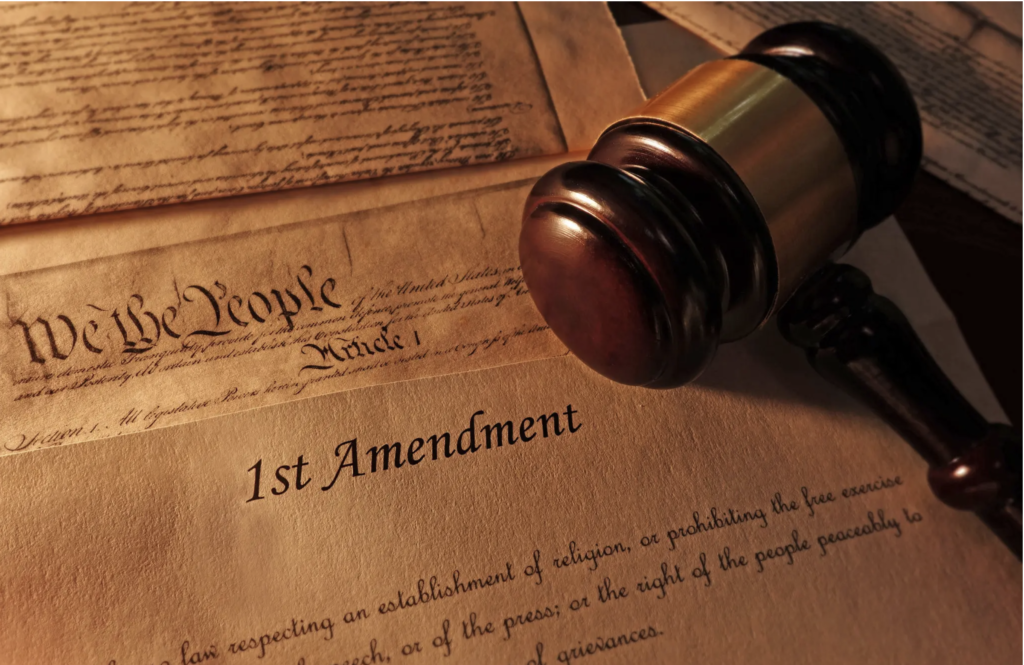Just you know, your comments cannot be deleted or blocked on a public official’s page. It’s probably Facebook that is used most frequently by politicians and bureaucrats.
If you feel that you’re likely to be censored by a public official or page, contribute your comments and take a screenshot. This way, if your comments disappear, there is proof.

I’m sharing the entire report from the ACLU for easy reading.
By Vera Eidelman, Staff Attorney, ACLU Speech, Privacy, and Technology ProjectJANUARY 9, 2019 | 12:00 PM
” One of the core purposes of the First Amendment is to allow people, regardless of their views, to hold the government accountable through expression. So, if your elected representative has an official Facebook page where she invites comments, can she block you from commenting because you criticize her work?
According to a federal appeals court, the answer is a resounding no.
On Monday, the Fourth Circuit Court of Appeals ruled that the interactive portion of a public official’s Facebook page is a “public forum,” so an official cannot block people from it because of the opinions they hold.
The case arose after the chair of a local board of supervisors in Virginia, Phyllis Randall, briefly blocked a critic from her official Facebook page and deleted a comment he made about her colleagues’ management of public funds.
The critic, Brian Davison, represented by the Knight First Amendment Institute, filed a lawsuit arguing that Randall had violated his First Amendment rights by removing him from a public forum — space the government makes available for people’s expressive activity — because she disagreed with his views. Randall countered that she has the authority to control the page’s content — including the comments. (President Trump has used some of the same arguments in a lawsuit against him for blocking people on Twitter.)
We filed a friend-of-the-court brief in support of Davison, arguing that officials cannot prevent people from joining in a public conversation because of their viewpoints, and the three-judge appeals court panel agreed.
It is important to remember that people who hold public office can wear two hats: Sometimes, they act as private individuals, and other times they are government actors. While they maintain their First Amendment rights when acting as private individuals, they are subject to the limits the First Amendment places on the government whenever they’re doing government work.
As the court rightly held, that includes any time that they’re controlling a Facebook page they maintain in their official roles. Specifically, the court recognized that when a public official uses a Facebook page as a tool of governance — that is, when she uses it to inform the public about her government work, solicits input on policy issues through the page, and swathes it “in the trappings of her office” — she is controlling the page as a government actor.
And if she opens that page to public comment, the interactive space of the Facebook page constitutes a public forum. The fact that the page exists on a website owned by a private company doesn’t change that.
That means that, when a public official blocks critics from the page because of their viewpoints, she violates the Constitution. Indeed, the right to criticize the government is at the heart of the First Amendment. The court specifically recognized blocking as infringing on that right, noting that blocking someone in order to silence criticism of government work is itself evidence of government action.
The Fourth Circuit is the first appellate court to opine on this issue, and its order controls public officials and agencies in Virginia and nearby states. Elsewhere around the country, public officials have also stopped censoring critics on their social media pages thanks to the work of the ACLU.
These cases help to ensure that our First Amendment rights remain protected as our democracy increasingly moves online. The fact that a public official disagrees with you on an issue doesn’t mean she can silence you. Indeed, it means the opposite — and that holds true whether you’re speaking out in a public park, at a town hall meeting, or on a Facebook page. “
Needless to say, you have the responsibility not to use threats or violence on their page. That’s not covered under Free Speech.
LOCAL CONTACT for ACLU
General Inquiries
Send us an email to office@acluhawaii.org or call (808) 522-5900 (voice messages only, this line does NOT accept inquiries for our legal program.)
CLICK HERE FOR LEGAL ASSISTANCE.
We’re sorry, but we can’t give legal advice over the phone.
Our office:
ACLU of Hawai‘i
P.O. Box 3410
Honolulu, HI 96801
Fax: (808) 522-5909
